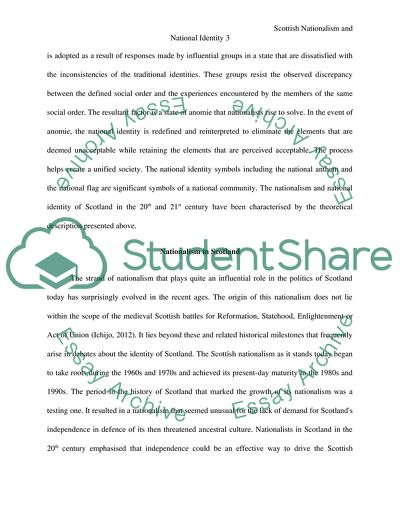Cite this document
(Scottish Nationalism and National Identity Coursework Example | Topics and Well Written Essays - 2500 words, n.d.)
Scottish Nationalism and National Identity Coursework Example | Topics and Well Written Essays - 2500 words. https://studentshare.org/politics/1874574-what-theoretical-approach-would-you-use-to-explain-scottish-nationalism-and-national-identity-in-the-20th21st-century
Scottish Nationalism and National Identity Coursework Example | Topics and Well Written Essays - 2500 words. https://studentshare.org/politics/1874574-what-theoretical-approach-would-you-use-to-explain-scottish-nationalism-and-national-identity-in-the-20th21st-century
(Scottish Nationalism and National Identity Coursework Example | Topics and Well Written Essays - 2500 Words)
Scottish Nationalism and National Identity Coursework Example | Topics and Well Written Essays - 2500 Words. https://studentshare.org/politics/1874574-what-theoretical-approach-would-you-use-to-explain-scottish-nationalism-and-national-identity-in-the-20th21st-century.
Scottish Nationalism and National Identity Coursework Example | Topics and Well Written Essays - 2500 Words. https://studentshare.org/politics/1874574-what-theoretical-approach-would-you-use-to-explain-scottish-nationalism-and-national-identity-in-the-20th21st-century.
“Scottish Nationalism and National Identity Coursework Example | Topics and Well Written Essays - 2500 Words”. https://studentshare.org/politics/1874574-what-theoretical-approach-would-you-use-to-explain-scottish-nationalism-and-national-identity-in-the-20th21st-century.


